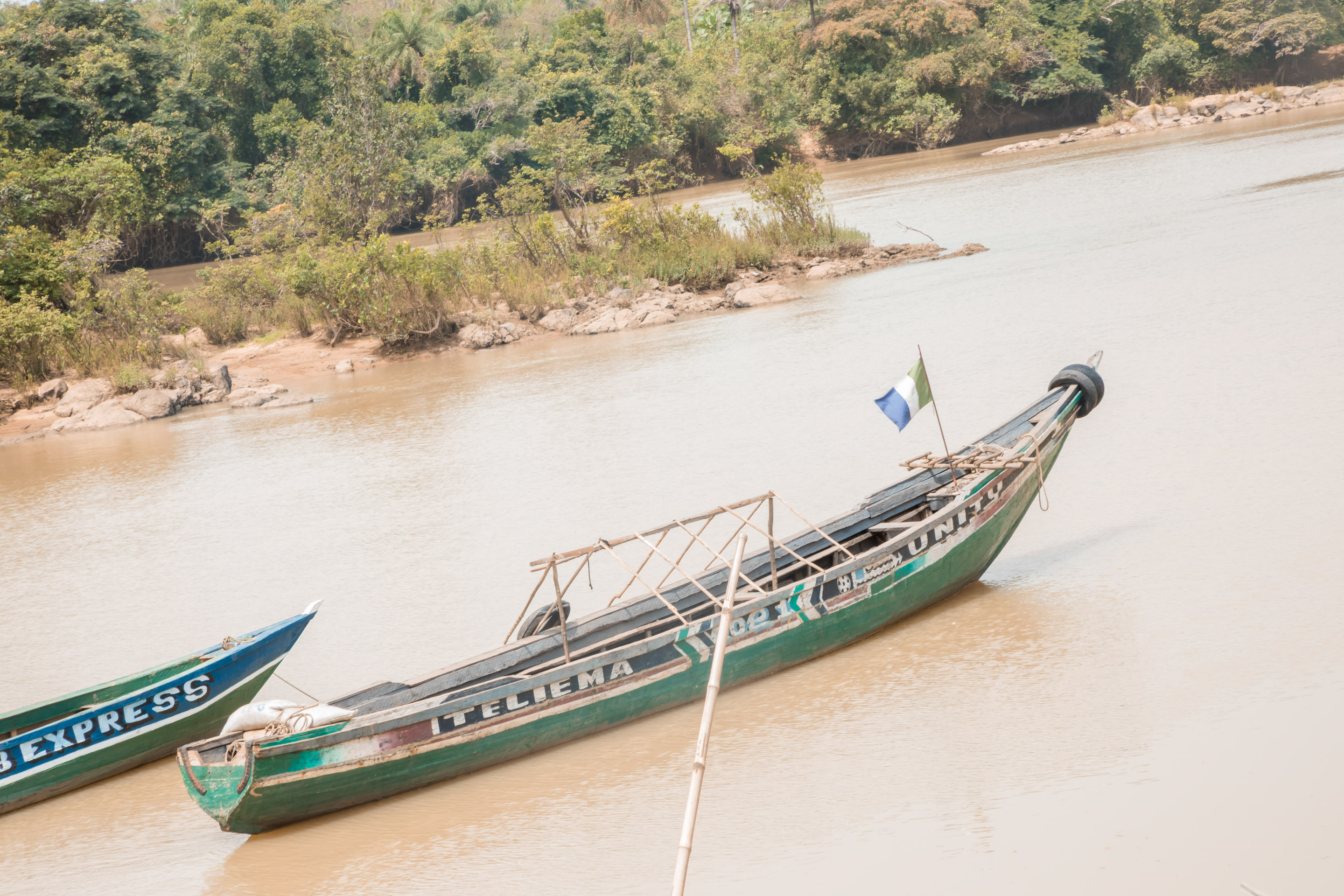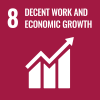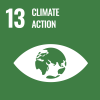Bo-Jong, 3 April 2023 – Jebbeh Lahai is a mother of two. Her family is among those who were seriously affected by the recent floods in Bo-Jong, a small island village in Bonthe, south of Sierra Leone. The village is home to approximately 500 residents most of whom rely on small-scale farming and fishing as their source of livelihood.
The 75-year-old woman has been living on the island for over three decades. “This is the first time in a long time we are getting this type of gesture to support vulnerable people like us on the island,” says Jebbeh, with a beaming smile.
Located on an island close to the Atlantic Ocean, accessing the village is no easy feat. The only means of transport to the island is by boat and canoes as used by its inhabitants who often make the journey daily to and from Bo-Jong to Matru, the district headquarters, and back.

Houses impacted by floods in Bo-jong. Photo: IOM 2023/Alfred Fornah
As a result of the heavy rains, River Jong broke its banks, overflowed into the neighbouring villages, including Bo-Jong, and left a trail of destruction impacting people living on the Island. Just last year, floods devasted households affecting more than 400 people in Bo-Jong and its environs in what has now become a recurring phenomenon. The floods destroyed houses and washed away household items, farm produce, and domestic animals. In the peak of the rains in August, the floods would force some of the villagers to move to neighbouring villages.
“Over the years, when we’re hit by the floods, some people would leave for safe havens in some villages around. Some would not even return until the dry season. And others would settle permanently in other towns or villages and never come back. So, this is a cause for the reduction in population on the island,” explains the 75-year-old woman.
Disasters have increased in occurrence and severity over the last few decades in West and Central Africa due to the adverse effects of climate change, compelling people directly and indirectly to leave their homes in a region where 80 per cent of the population depends on natural resources for their livelihoods.

Jebbeh was among those who received non-food items (NFIs) from IOM to rebuild their lives after the floods. Photo: IOM 2023/Alfred Fornah
Like Jebbeh, Mohamed Jahoi, a 33-year-old farmer and fisherman, is also among those affected by the floods.
“When the floods came, my properties were all swept away. I lost almost everything. This was a heart-breaking moment for not only me but hundreds of other people in the village,” Mohamed laments their ordeal.
He is one of the volunteers of the Town’s Water Embankment Initiative whose construction was facilitated by the International Organization for Migration (IOM), and which is being carried out by community volunteers. “As we are a few months away from the rainy season, I am afraid of the floods coming back. However, now that we have the Water Embankment initiative, I am more than hopeful that we will be safe,” says Mohamed.

The IOM Sierra Leone team at Matru Jong wharf facilitates the transportation/delivery of aid to the small island village. Photo: IOM 2023/Alfred Fornah
To prevent such a disaster, it is paramount to have mechanisms in place for disaster mitigation. IOM is currently supporting community volunteers to deliver a Pilot Water Embankment Initiative to mitigate the usual floods.
IOM Sierra Leone, working with the Sierra Leone National Disaster Management Agency (NDMA), conducted assessments to better understand the needs of the affected community. After this process, 57 households were identified and supported with household and hygiene items.
Jebbeh and her family were among those who received the much-needed items such as zinc panels, mattresses, and other basic household kits and hygiene items.

Mohamed Jahoi, though affected by the floods, is determined to contribute to flood mitigation solutions including the town’s water embankment, an initiative supported by IOM. Photo: IOM 2023/Alfred Fornah
By 2030, an estimated 50 per cent of the world’s population will live in coastal areas exposed to flooding, storms and tsunamis. The West and Central Africa region is particularly vulnerable to sudden onset events such as floods, and is also exposed to land degradation, water scarcity and coastal erosion.

IOM provides zinc panels, nails, and other materials to the affected people as they rebuild their homes. Photo: IOM 2023/Alfred Fornah
This Intervention was made possible, thanks to the project “Enhanced Resiliency and Living Conditions for Vulnerable Communities Addressing Economic, Health, and Food Security Challenges due to Impacts of COVID-19 in Sierra Leone” implemented by IOM in collaboration with the Sierra Leone Government, with funding from the Government and People of Japan through the United Nations Trust Fund for Human Security.
This story is written by Alfred Fornah, Media and Communications Assistant, IOM Sierra Leone.



